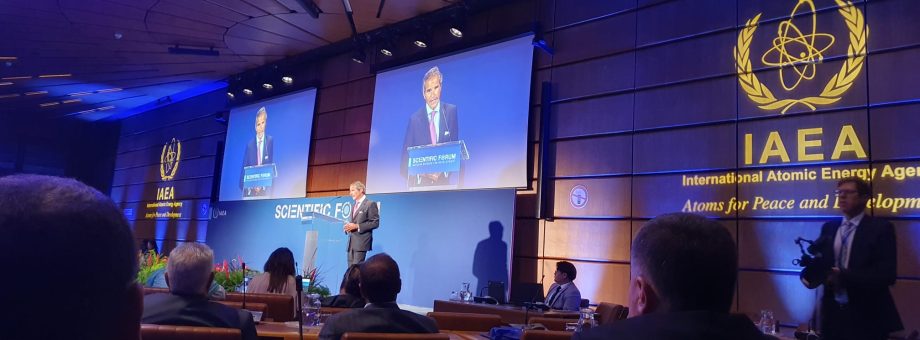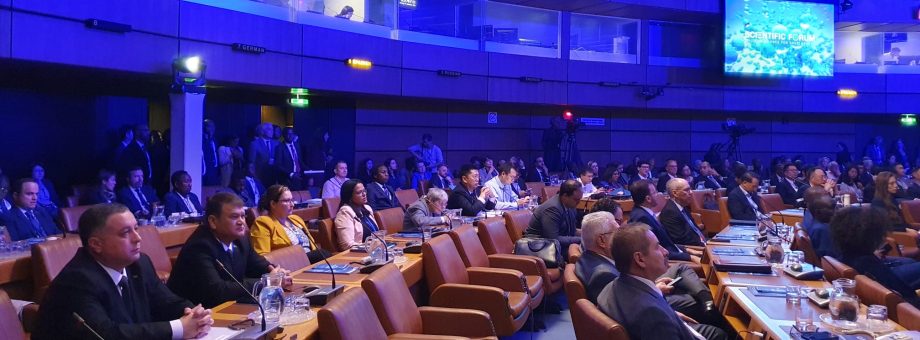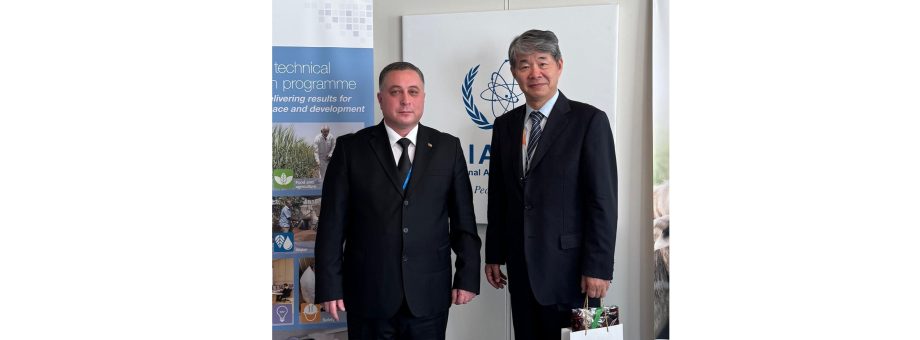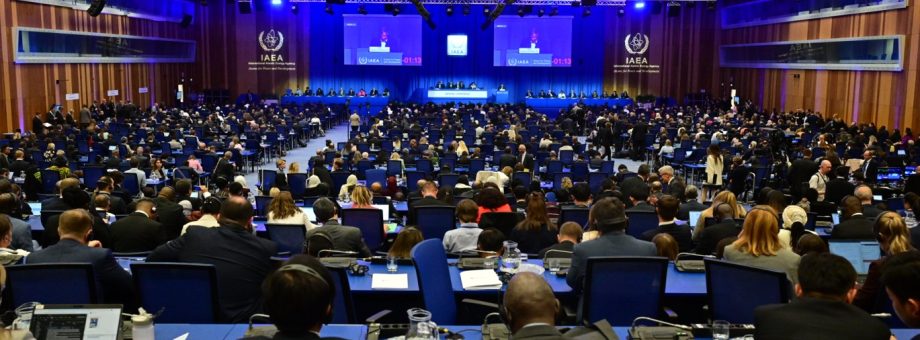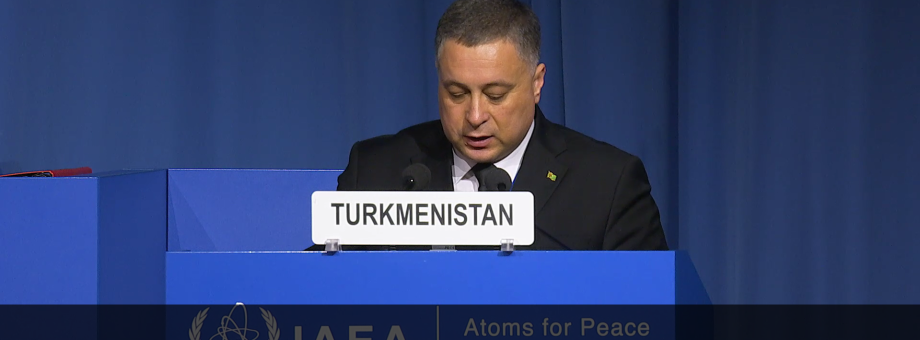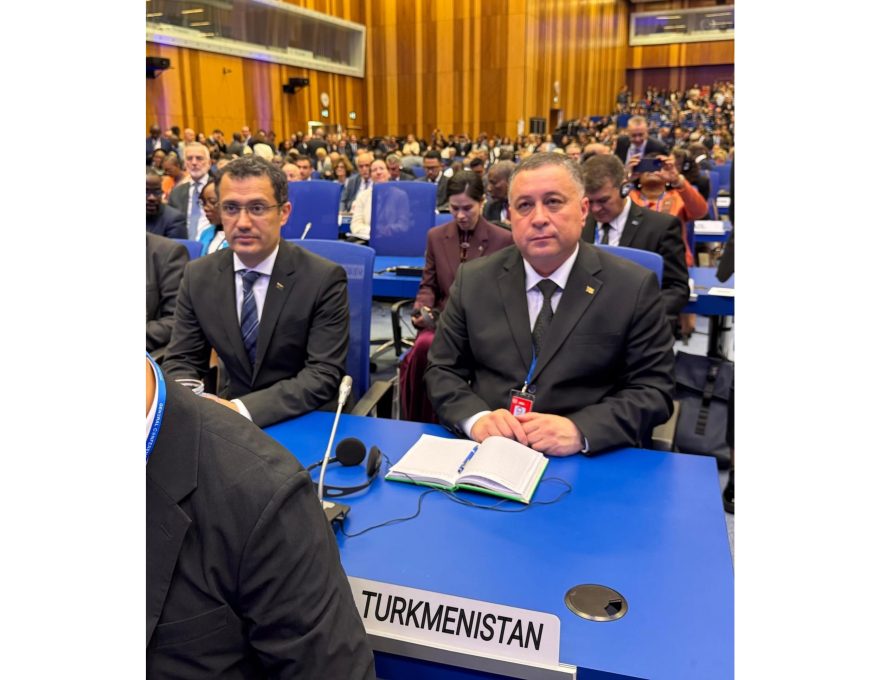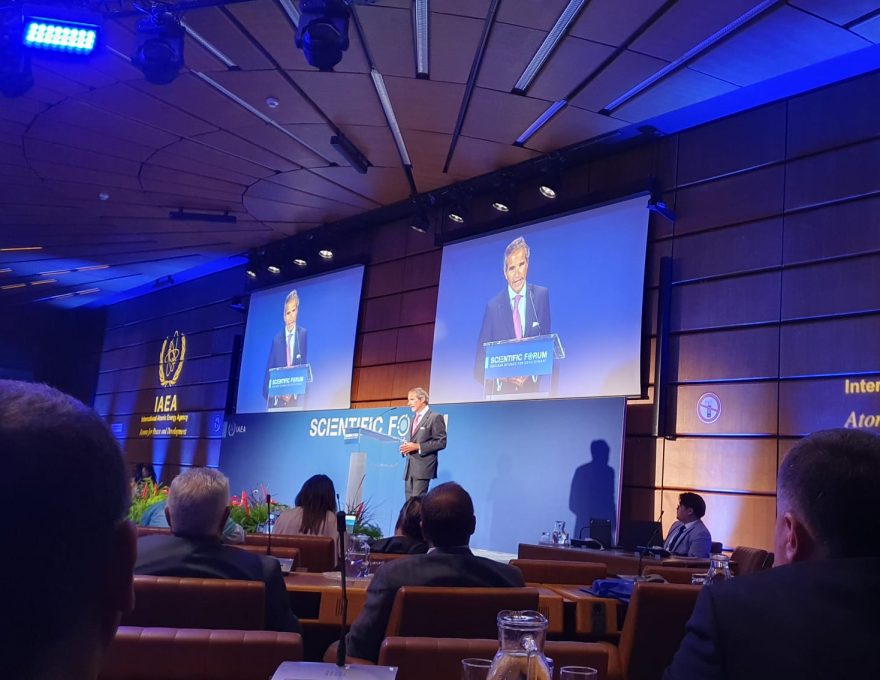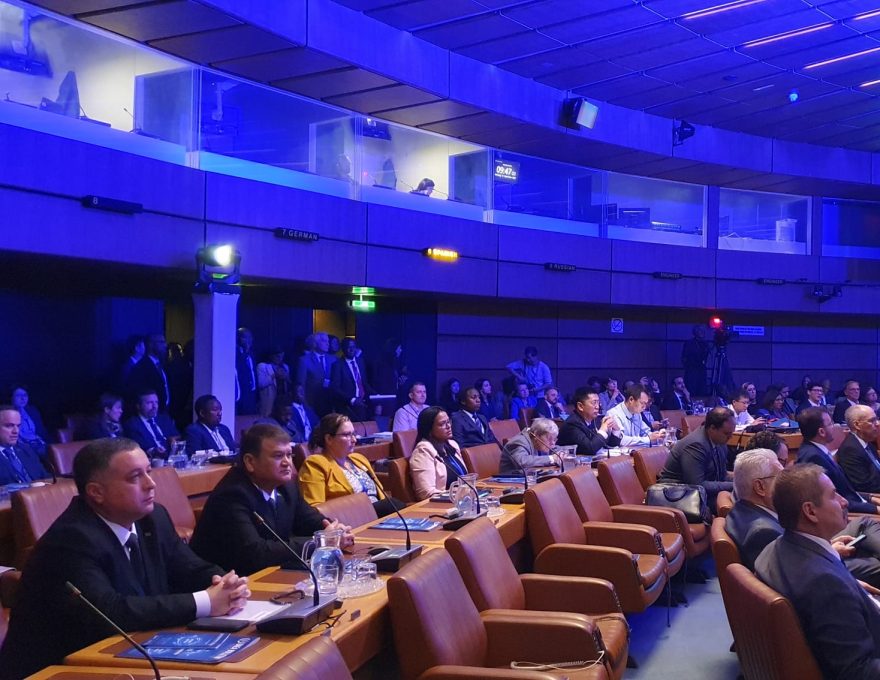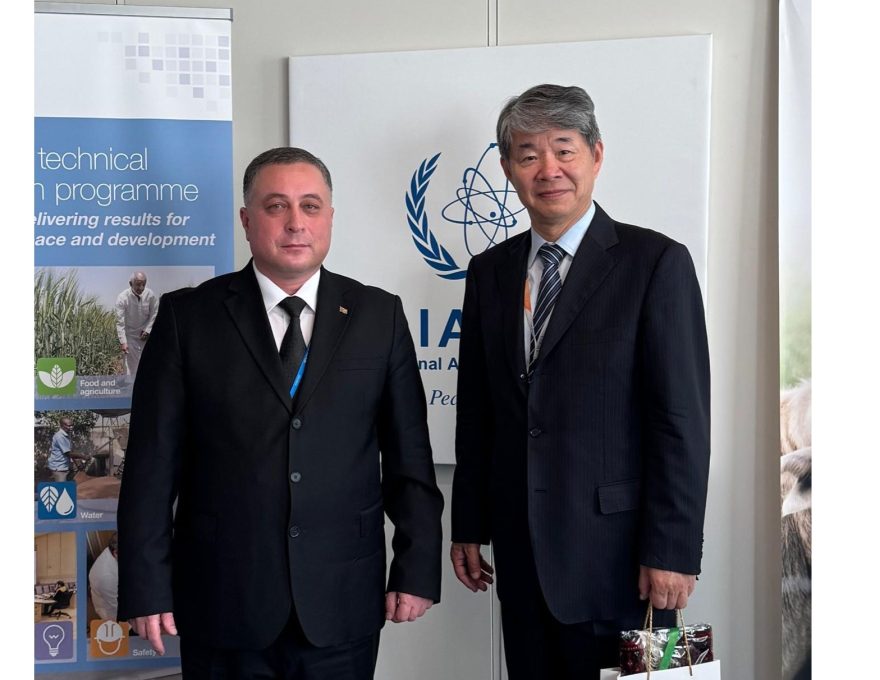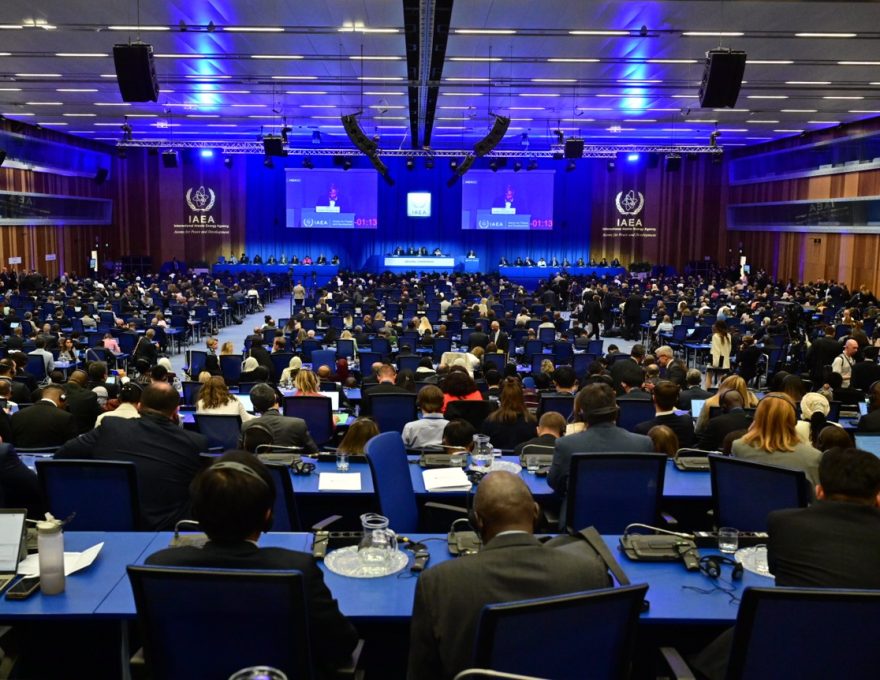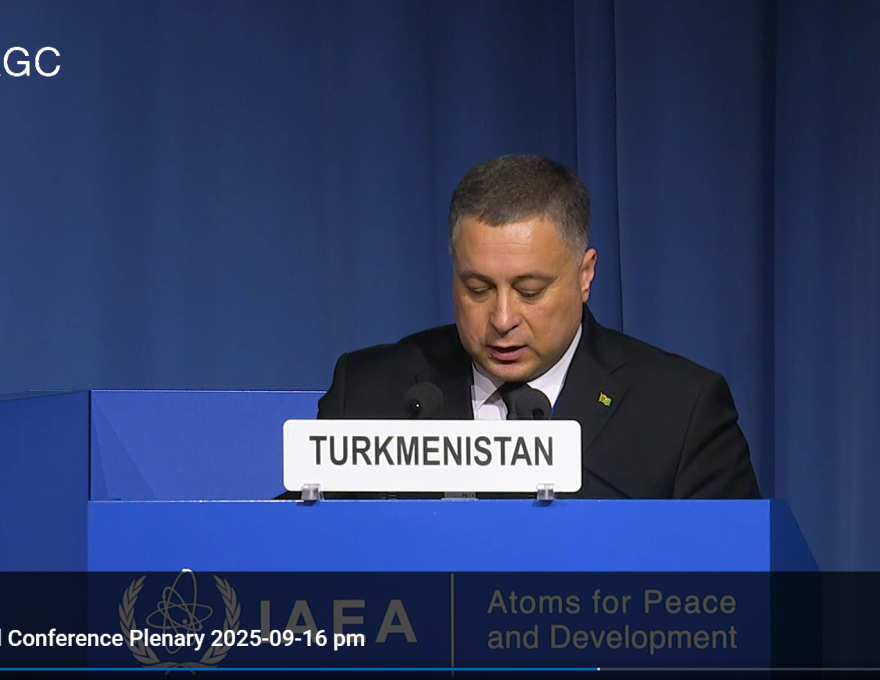Participation of the Delegation of Turkmenistan in the 69th Session of the IAEA General Conference
15 September 2025
Vienna, Austria
The delegation of Turkmenistan, headed by Deputy Minister of Health and Medical Industry of Turkmenistan Mr. Azat Ovezov, participated in the 69th regular session of the General Conference of the International Atomic Energy Agency (IAEA), held from 15 to 19 September 2025 in Vienna, Austria.
In its statement, the Turkmen side highlighted key areas of cooperation with the IAEA, including the modernization of radiotherapy services, the updating of the legislative framework on radiation safety, the improvement of radioactive waste management systems, and the establishment of dosimetry and calibration services. The delegation also outlined upcoming projects in the fields of food security, water resource management, and healthcare.
Particular attention was given to the celebration this year of the 30th anniversary of the United Nations’ recognition of Turkmenistan’s permanent neutrality.
In addition, as part of the delegation’s visit, a meeting was held with IAEA Deputy Director General Mr. Liu Hua. During the talks, key areas of cooperation under the IAEA Technical Cooperation Programme were discussed, including the development of nuclear medicine, national infrastructure for the peaceful use of atomic energy, radioactive waste management, and Turkmenistan’s participation in current and prospective technical projects of the Agency.
Special emphasis was placed on the results of the successfully conducted imPACT Review Mission, organized by the IAEA and the WHO last week. The mission evaluated national cancer control programmes, assessed the achievements made by Turkmenistan in this field, gave high marks, and identified priority areas for further cooperation.
Additionally, on 16 September 2025, the delegation of Turkmenistan took part in the Scientific Forum, held within the framework of the IAEA General Conference. This year’s theme was “Atoms for Water.” The forum focused on the use of nuclear and isotopic technologies to address global challenges in water resource management, ensuring access to safe drinking water, and promoting sustainable water supply in the context of climate change.


 NEWS
NEWS

